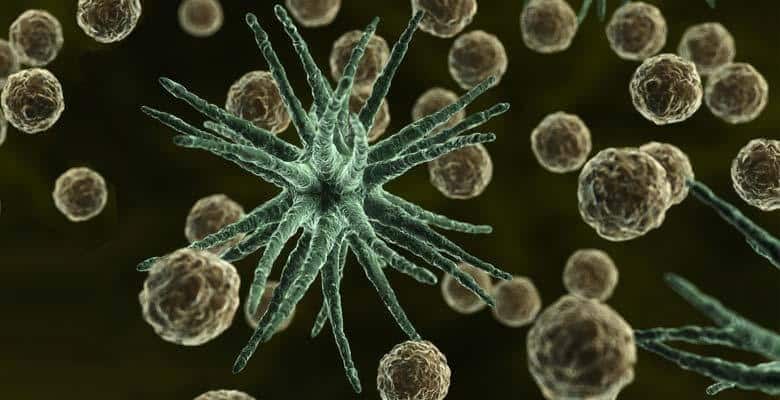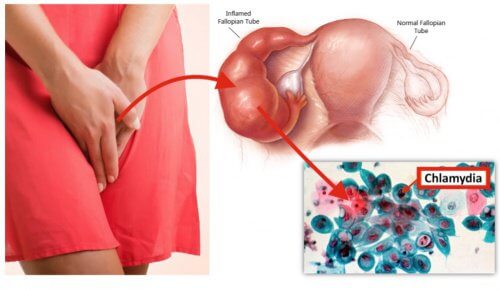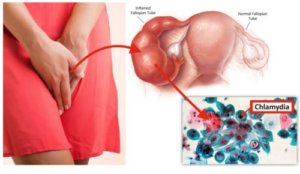Chlamydia is a common sexually transmitted infection that can cause serious, permanent damage to a woman’s reproductive system. This can make it difficult or impossible for her to get pregnant later on. Chlamydia can also cause a potentially fatal ectopic pregnancy (pregnancy that occurs outside the womb).
Chlamydia is the most common STI in the United States, with an estimated 4,000,000 new cases occurring annually.
Furthermore, 70% of women and 50% of men experience no visible symptoms.
The only way to know for sure if you have Chlamydia is to get Tested.
What are the Symptoms of Chlamydia?
You can’t diagnose Chlamydia by looking at pictures, because the symptoms are so varied from person to person, and match up with too many other possible causes. In addition, many people with chlamydia experience no symptoms (70% of women and 50% of men).
If symptoms do appear, they can become noticeable between one and three weeks after infection. In others, it can take a number of months or until the infection spreads to other parts of the body.
Women with symptoms may notice:
- An abnormal vaginal discharge.
- A burning sensation when urinating.
Symptoms in men can include:
- A discharge from their penis.
- A burning sensation when urinating.
- Pain and swelling in one or both testicles (although this is less common).
Men and women can also get infected with chlamydia in their rectum.
This happens either by having receptive anal sex, or by spread from another infected site (such as the vagina). While these infections often cause no symptoms, they can cause
- Rectal pain.
- Discharge.
- Bleeding.
A person of any age, sex, race, or sexual orientation can get infected with Chlamydia.
- Having Unprotected Vaginal, Anal, or Oral Sex with someone who has Chlamydia is the primary way the disease spreads.
- Sometimes people also become infected by sharing sex toys.
- If you are pregnant, you can give chlamydia to your baby during childbirth.
Chlamydia is transmitted via sexual contact with an infected partner.
- Your partner does not have to ejaculate in order to infect you.
- If you’ve previously been treated for Chlamydia, you can become infected again.
Correct use of a condom will reduce the risk of contacting Chlamydia, but it won’t eliminate it.
The surest way to avoid transmission of Chlamydia is to abstain from sexual contact, or to be in a long-term mutually monogamous relationship with a partner who has been tested and is known to be uninfected.
Even though many people experience no symptoms, Chlamydia is still silently destroying your reproductive organs.
If you’re a woman, untreated chlamydia can spread to your uterus and fallopian tubes (tubes that carry fertilized eggs from the ovaries to the uterus). This can cause pelvic inflammatory disease (PID).
PID often has no symptoms, however some women may have abdominal and pelvic pain. Even if it doesn’t cause symptoms initially, PID can cause permanent damage to your reproductive system. PID can lead to:
- Long-term pelvic pain
- Inability to get pregnant
- Potentially deadly ectopic pregnancy (pregnancy outside the womb)
Men rarely experience long-term health problems from Chlamydia, but it can spread to the tube that carries sperm from the testicles, causing pain and fever. Rarely, chlamydia can prevent a man from being able to have children.
Chlamydia infections can cause major complications for infants born to mothers with the virus. If you are pregnant and have chlamydia it is even more important for you to go to prenatal care visits. You need to tell your doctor if you have ever had symptoms of, been exposed to, or been diagnosed with chlamydia.
If you are pregnant and have chlamydia, you can pass the infection to your baby during delivery. This could cause an eye infection or pneumonia in your newborn. Having chlamydia may also make it more likely to deliver your baby too early. Chlamydia can also cause a potentially fatal ectopic pregnancy (pregnancy that occurs outside the womb).
If you are pregnant, you should get tested for chlamydia at your first prenatal visit. Testing and treatment are the best ways to prevent health problems.
Yes! Chlamydia can be killed with antibiotics. Several different antibiotics can be prescribed, such as, amoxicillin, azithromycin (zithromax , zpack), doxycycline, erythromycin, levaquin, offloading and tetracycline. Pregnant women can only take erythromycin, amoxicillin and azithromycin. Babies younger than 1 month can only take erythromycin.
Upon beginning antibiotics, the infection is usually cured in about 10 to 14 days.
It’s always a good idea to repeat the Chlamydia test in order to ensure the infection has in fact been cured.
Chlamydia Test
$119.00Add to cart
The Nucleic Acid Amplification (NAA) test is a simple urine test used to detect the Chlamydia bacterium. The urine test has been proven to be more accurate than the swab, which requires a pelvic exam for women and a urethral swab for men. The urine test is also painless and non-invasive, unlike the swab.
First morning urine is recommended for this test, but the specimen is acceptable if the patient has not urinated for at least 1½ to 2 hours before it is collected. It is very important that first void urine (the first part of the urine stream) be collected for the specimen.
It is recommended that the test is taken 7 to 10 days after a contact of concern, although, virtually all persons with Chlamydia will have positive results within 5 or 6 days of infection.







